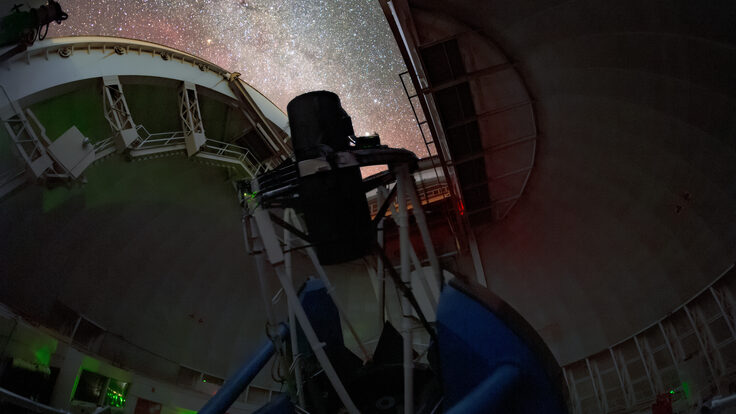 |
| University of Witwatersrand graduate students (bottom, from left) Martin Cook, Norman Ives, and Claire Lee, with (top, from left) US ATLAS Deputy Research Program Manager Howard Gordon, Columbia University physicist Jeremy Dodd, Brookhaven physicist Ketevi Assamagan, and US ATLAS Research Program Manager Michael Tuts. |
| Photo: Brookhaven National Laboratory |
Connecting with Africa
ATLAS, a particle physics experiment at CERN’s Large Hadron Collider, boasts 2000-plus members from 35 countries. But on a map showing where those members come from, one continent is almost mark-free: Africa.
Leaders of ATLAS are trying to change that.
This summer, three graduate students from the University of Witwatersrand in South Africa came to the United States for a 10-day tour and a workshop on the Open Science Grid, which will help US scientists analyze the huge amount of data collected by the ATLAS experiment.
At Brookhaven National Laboratory on Long Island, New York, Claire Lee (photo, from left), Norman Ives, and Martin Cook met with physicist Ketevi Assamagan and his colleagues. Brookhaven is the central hub for distributing ATLAS data among US physicists.
“Prior to this trip, all we really knew about the Grid is that it’s a bunch of computers put together,” says Cook. At the Grid workshop in Nebraska, he and his fellow students learned how to install software back at their home university and how to use various data analysis techniques.
They also talked with scientists about how their university might fit into the ATLAS collaboration. So far it includes just one African country—Morocco.
“We don’t want them to just disappear in this massive collaboration,” says Assamagan. “We want them to find some specialty that will make them visible.”
Kendra Snyder, Brookhaven National Laboratory
Click here to download the pdf version of this article.






